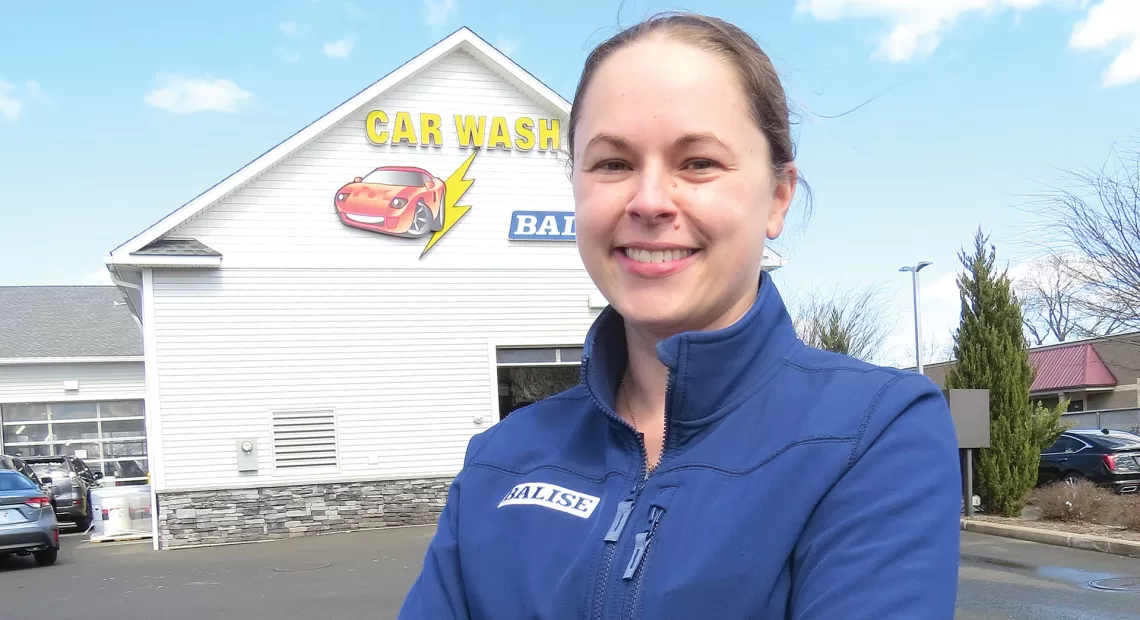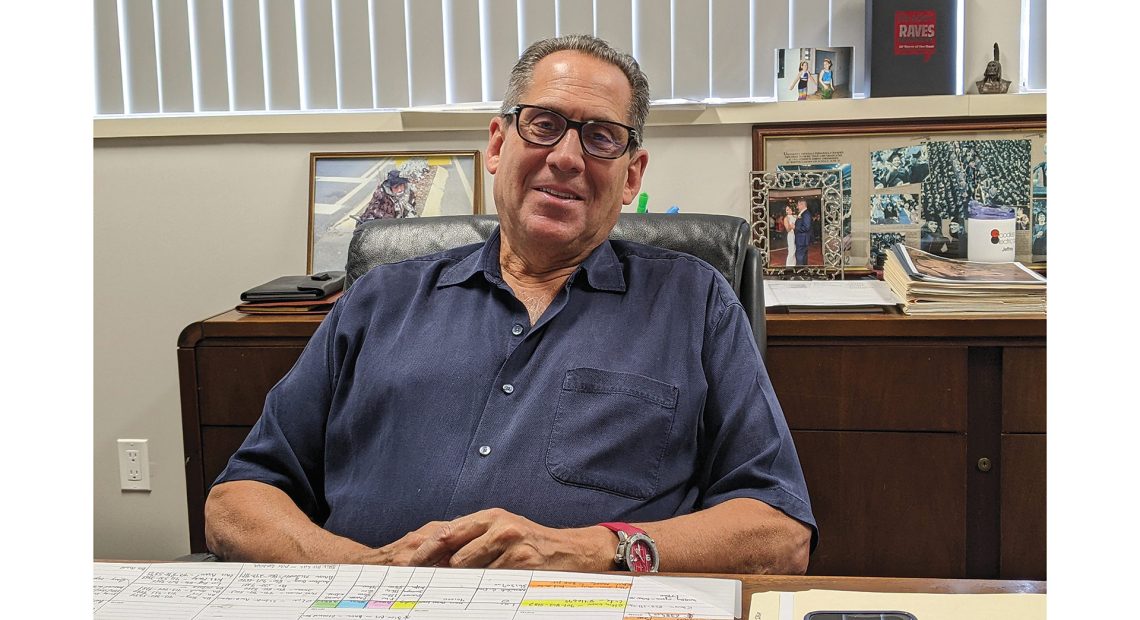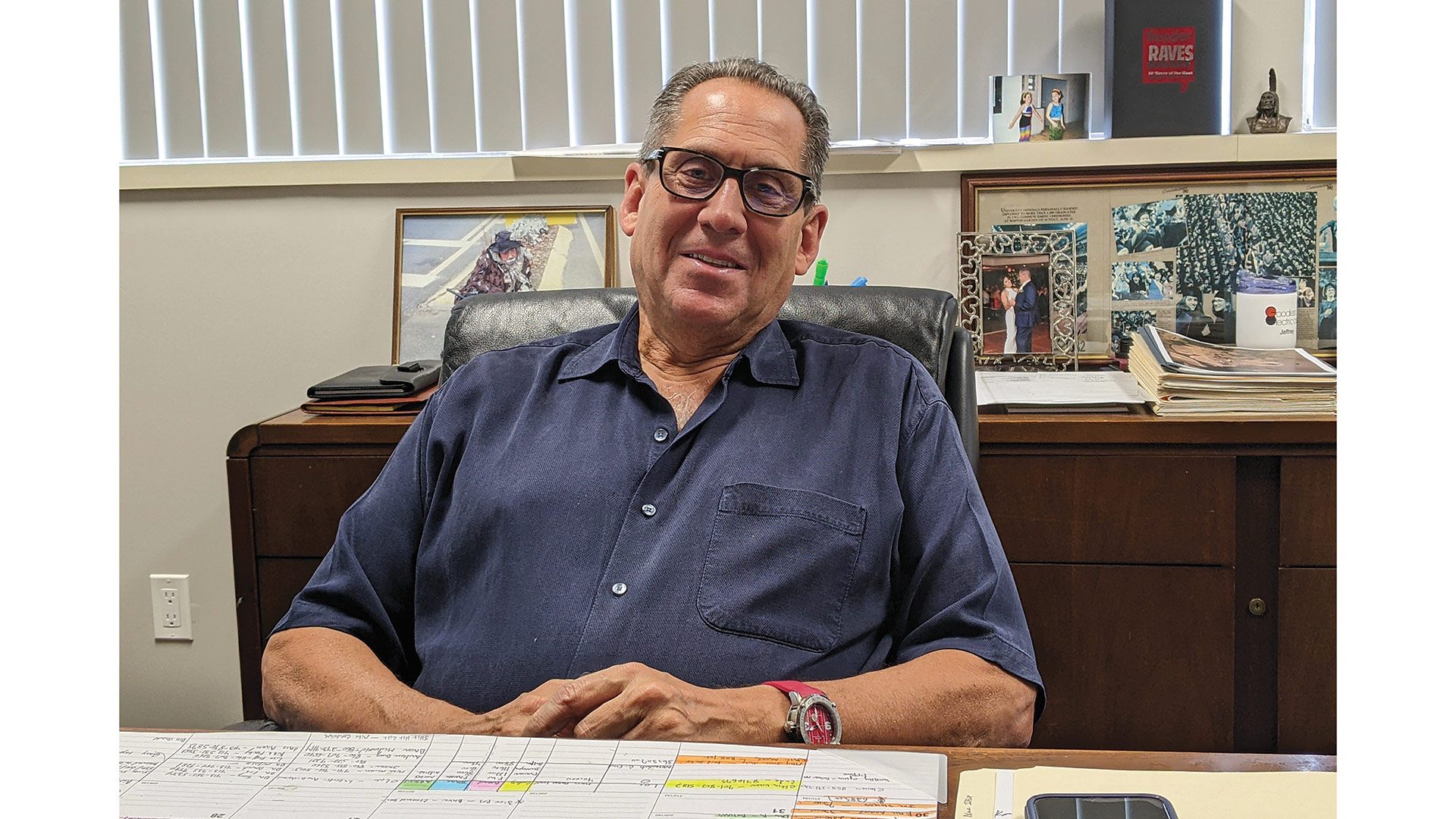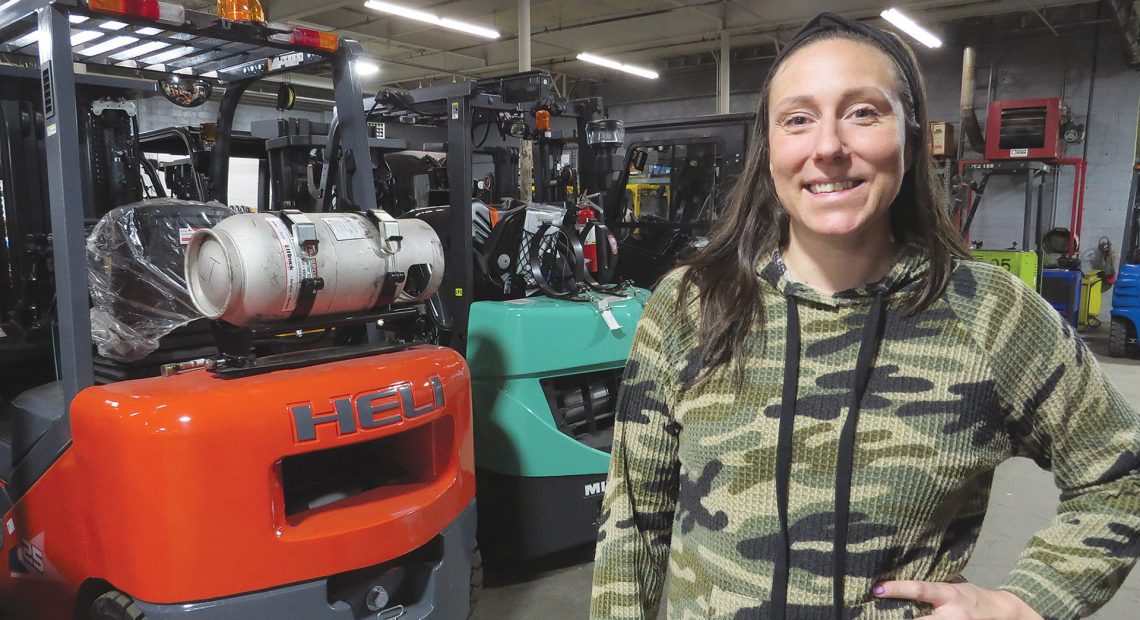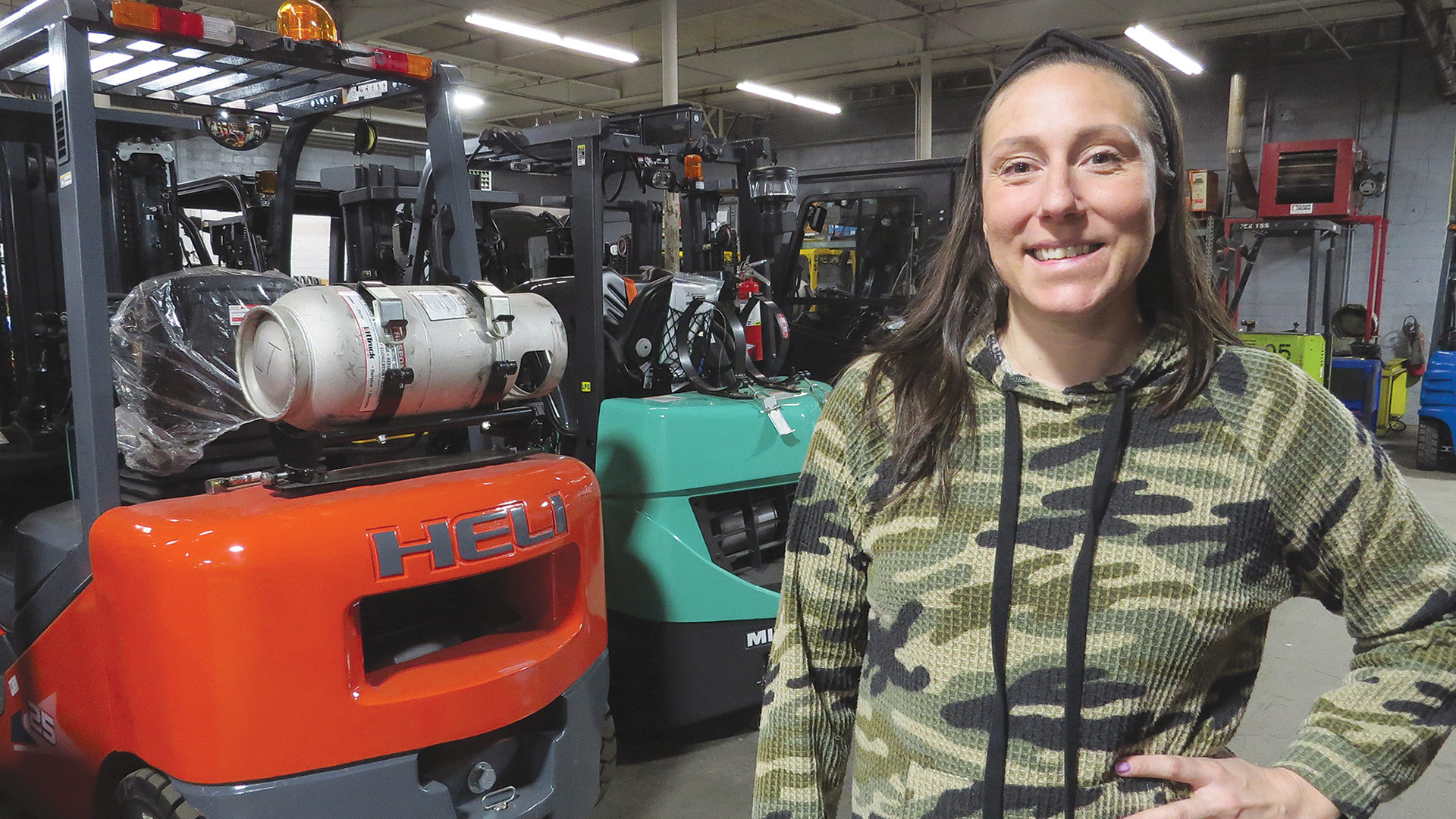Driving Ambition
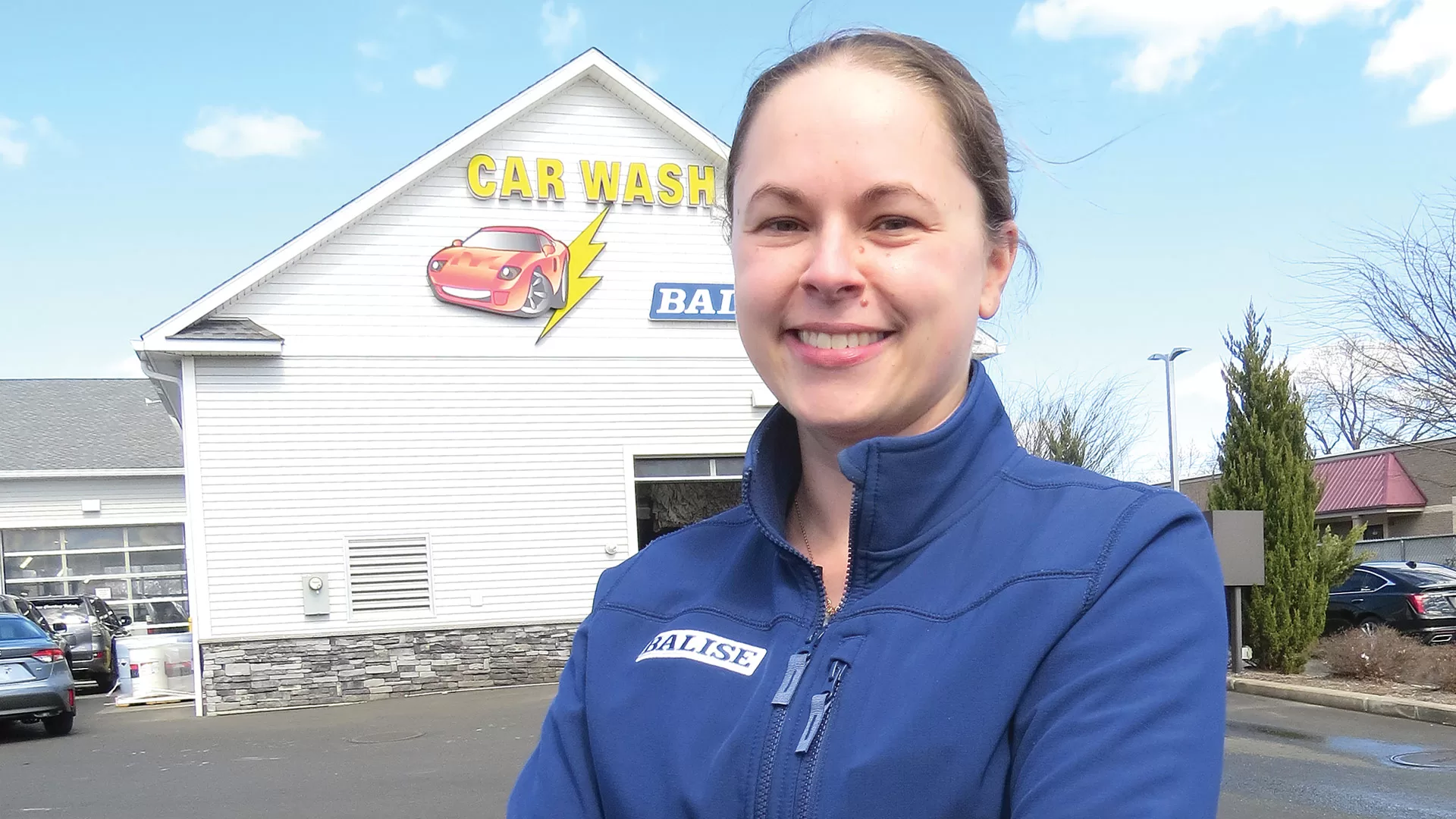
Alex Balise
Alex Balise always thought she would get involved in the family business.
She just thought that would happen when she was maybe 40, not in her mid-20s, as things turned out.
But since they did turn out that way (and we’ll go back and explain way later), she is now eight years into what has become an intriguing and wide-ranging career, one that has her engaged in everything from cars — the family business is Balise Motor Sales — to car washes; from two laundromats (one in Springfield and the other on the Cape) to whatever might come next for this 105-year-old enterprise.
Indeed, Balise, 36, representing the fourth generation of the family to assume leadership roles with the company, recently saw her role change, or, to be more precise, expand. While she’s still director of Marketing, she is now also director of Corporate Strategy, which means she will play a large role in helping to shape what might come next.
“I’ve been doing more … projects,” she said, being intentionally vague. “I’ve been very involved in the car washes, and that’s been a rapid expansion, and we’re also looking at some other business opportunities that we haven’t done before.”
While doing that, she is still leading the marketing efforts for the Balise company, which has dealerships in the 413, on the Cape, and in Rhode Island; car washes in Western Mass. and Connecticut; five collision centers; and that aforementioned laundromat in Springfield’s South End.
“We’re doing a lot to highlight our people in the ads recently, and that makes sense. After all, they’re the people who make Balise … Balise. Our teams are who make the difference, so why not have them be the face?”
This a wide-ranging assignment, one that keeps a staff of six (with some help from a few agencies) busy, and includes ad creation, media buying, social media, website content, and determining if, how, and to what degree the company will honor the myriad requests it receives for support from area nonprofits, a difficult assignment because, as she put it, “I can’t think of a single thing that came in that wasn’t a good cause; they’re all good.”
For many years, marketing at Balise was the purview, if you will, of her late uncle Mike, who succumbed to stomach cancer in 2015 and was named a BusinessWest Difference Maker posthumously in 2016. He was the face of the company, she acknowledged, adding that she has resisted any and all efforts to become the new ‘face,’ noting that “I don’t have the personality for it.”
Instead, she has led efforts to make the company’s employees the collective new face, with ads featuring them in many different roles.
“We’re doing a lot to highlight our people in the ads recently, and that makes sense,” she said. “After all, they’re the people who make Balise … Balise. Our teams are who make the difference, so why not have them be the face?”
Meanwhile, she is carrying on her uncle’s tradition of getting involved in the community, especially in the broad realm of education.

Alex Balise is carrying on her uncle Mike Balise’s tradition of buying coats for students at Springfield’s Homer Street School, now the Swan School.
Indeed, just as Mike did for several years, she reads in the classroom for Link to Libraries at the recently opened Swan School, a replacement for Homer Street School, which was sponsored by the Balise company for many years.
She also carries on another of Mike’s traditions — buying winter coats for students at the school — and takes it to another level with some serious shopping for deals, stretching the allotted dollars and using the savings to buy hats and other accessories.
“Costco will have these deals — ‘spend this much and get this much off,’” she explained. “So I’ll buy them in buckets so that we get the most of the discount, and then I’ll use what we saved with the discount to buy the extra things, like hats and gloves. There are definitely some things that Mike started that we’re happy to continue.”
And while doing all that, she’s also raising two young children, son Connor, 5, and daughter Emma, 3. It’s a complicated and delicate balancing act, one that she discussed, along with many other topics, in a wide-ranging interview with BusinessWest for this issue and its focus on women in business.
Drive Time
One of the better perks for those in the auto-sales business — even those in charge of marketing and, now, corporate strategy — is being able to drive a demo.
And for Balise, the car of choice — and there is a lot to choose from in an auto group that sells several different makes — is the Toyota Crown, a sporty hybrid sedan. Yes, a sedan. Even with two young children, she’ll leave the SUVs for others to drive.
“If we have the opportunity to have more focused donations that have a bigger impact on the organizations that we’re helping, that’s the direction we’ve decided to take.”
Although this sedan doesn’t look much like anything else on the road.
“I’ve never had more people ask me, ‘what is that you’re driving?’” she said. “Because it is a little different.”
Balise spends a considerable amount of time in whichever Crown she’s driving at the moment — she doesn’t keep them past 5,000 miles — splitting her days between the 413, Rhode Island, and the Cape. While driving, she’s usually listening to audiobooks (she likes both fiction and nonfiction and is currently ‘rereading’ the Harry Potter books) and thinking about all the many balls she’s keeping in the air at present.
All this wasn’t exactly where she pictured herself at this stage of her life and career, but there have been some, well, unexpected turns.
Like most who grew up around the car business, Balise spent summers and school breaks working in various jobs at dealerships. She recalls working in the parts department, calling customers to tell them their appointments were coming up, and even handling paperwork created by the federal government’s infamous Cash for Clunkers program designed to fuel auto sales in the wake of the Great Recession.
But she wasn’t thinking about making this a career.

Alex Balise meets some residents of the Zoo in Forest Park after the company wrapped a vehicle and donated it to the zoo for its educational programs.
Instead, while earning her undergraduate degree at Colgate University, she was thinking about teaching and then working in the broad realm of education policy.
But she graduated into a tough job market in 2009 and eventually moved to Boston with her husband, Trevor McEwen, who did manage to find work. She eventually secured some herself, working for a student health-insurance brokerage and consulting firm for three and a half years.
She learned a lot about business in that role, but decided she needed to further that education and earned an MBA, with a concentration in marketing, at Babson College. With that degree, she sought work in education consulting and hospital operations, but “couldn’t find anything I loved.”
Meanwhile, Balise Motor Sales was opening another car wash in West Springfield, and her father, Jeb, its CEO, asked her to run some pro formas and work on the project.
“That was really interesting — I didn’t know anything about car washes, so I learned a lot there,” she said, adding that she spent most of her time on the Cape, where the company opened its first such facility.
To make a long story shorter, that learning experience would be the start of her career with the company, she said, adding that she moved on to a different project, the opening of a Kia store in West Springfield in 2016 after the company was awarded that franchise.
And during that project, Balise’s vice president of Marketing retired, and Alex was asked by then-President Bill Peffer to take over that broad realm.
She did, but while doing so, she became a hybrid worker long before that phrase came to be, working at her home in Framingham two or three days a week and driving to West Springfield the others.
“My father didn’t love that idea — he felt that a manager should be in the office every day,” she recalled. “He said, ‘how can I manage these people if I wasn’t there every day?’ But I decided to do it and see if we could make it work. And we did.”
To a Higher Gear
Balise eventually moved back to this area in 2018, putting her further away from the company’s dealerships in Rhode Island and on the Cape, but in a better place overall to oversee marketing for a steadily growing portfolio of auto-related businesses.
And some not auto-related.
Balise said the laundries, operating under the name Love Your Laundry, were her father’s idea, and the Springfield facility, right behind the company’s Mazda dealership, was seen as a way to help the residents of Springfield’s South End.
“It’s not something that we’re planning to blow up and have 25 locations, like the car washes, but if there are opportunities … we’ll see where it goes,” she said, adding that she has plenty of other things on her plate, especially the duties that come with being director of Corporate Strategy.
Whatever the title on the business card might be, Balise said she will always be heavily involved in the community. In fact, opportunities to do so comprised one of the larger reasons why she joined and then stayed with the company.
“I felt I could make a bigger impact through the family business than I could on my own if I worked somewhere else,” she told BusinessWest, adding this impact comes in many different forms.
One of them is playing a lead role in reviewing requests for support from the area’s legion of nonprofits and deciding which directions the Balise company’s philanthropic efforts will take.
It’s a huge responsibility and one she takes quite seriously.
“Having to say no is the worst — it’s tough,” she said, adding quickly that it’s even harder to say no when Balise doesn’t have guidelines for its giving.
So the company — more specifically, her team — created some, addressing everything from areas of focus, such as youth, education, healthcare delivery, and civic and community development, to how to make the most impact.
“In talking about it and in looking at what we’ve supported historically and where we’ve been able to have the biggest impact, we thought we could say yes to $100 for several small donations and have small impacts for some, or … we could refine our guidelines and make sure that, where we’re donating, we have a bigger impact that’s going to have a lasting result in the community.
“So instead of sponsoring a golf tournament or a gala, we want to actually sponsor the new computers or building a new classroom or medical deliveries, as opposed to the 5Ks to raise money. They’re all important, and we need all of those to fundraise, but if we have the opportunity to have more focused donations that have a bigger impact on the organizations that we’re helping, that’s the direction we’ve decided to take.”
Meanwhile, as noted, she is out in the community herself. In addition to reading at Swan School, she’s a corporator at Square One (the company also sponsors a classroom there), and, in the Providence market, she helped wrap presents to be given to patients at Hasbro Children’s Hospital, an initiative that involved many from the company.
While doing all that, she also saves large amounts of time for family, part of the balancing act that is part and parcel of being a woman (and, especially, a manager) in business today.
“It’s a lot, and it’s hard,” Balise acknowledged. “I’m lucky that I have a great team at work, and I have family nearby that can help pick up some days.
“When you have two young kids and you work, there is no balance. Basically, when I’m not working, I’m focused on my kids and my family, and we try to fit in as much as we can and have dinner together.”



